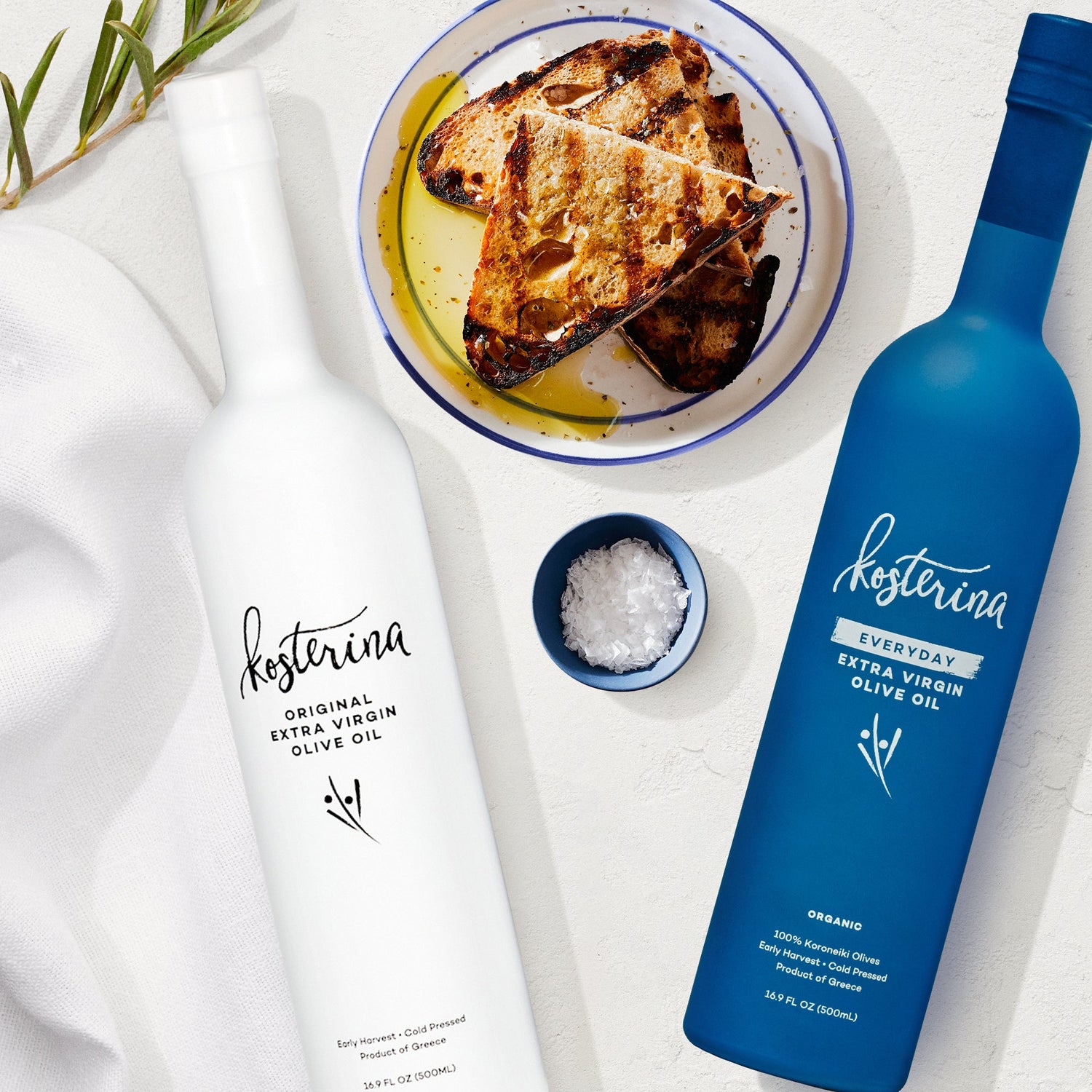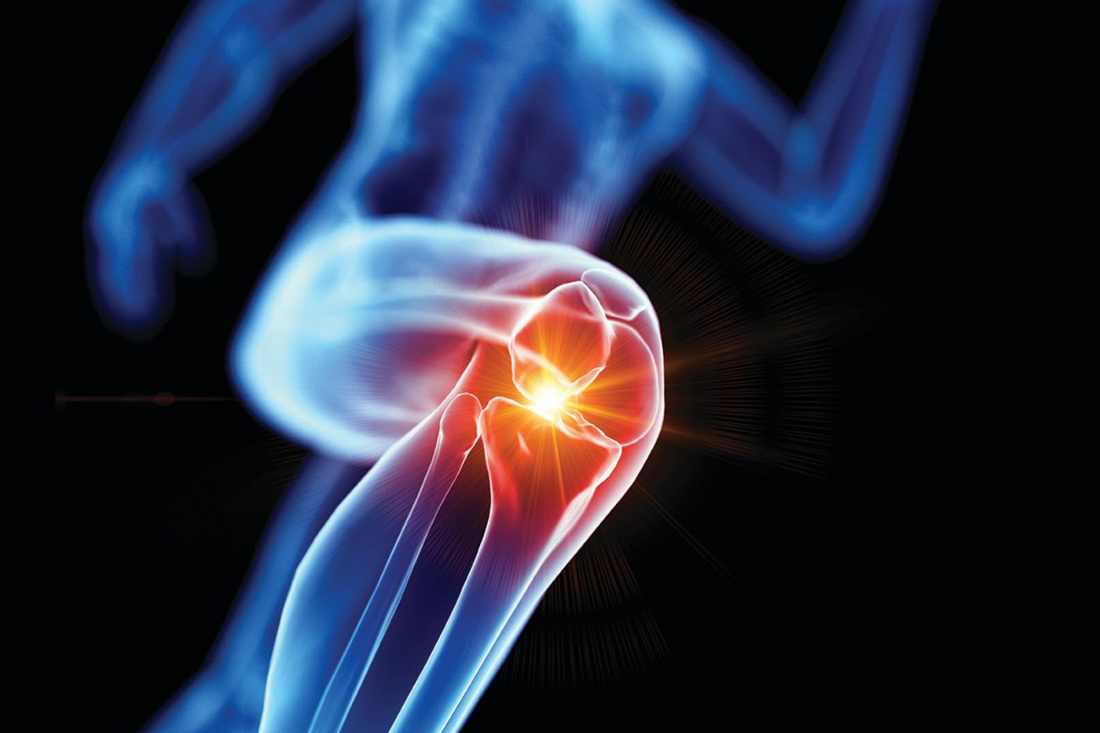Dear Kosterina Family,
You’ve probably heard the term "inflammation" thrown around a lot. It’s on wellness blogs, social media, and even food packaging. But what is it, really? And why does it matter so much for your health? The short answer: inflammation is at the root of most chronic illnesses. The good news? It’s manageable with the right lifestyle changes.
Let’s dive into what inflammation is, how it can impact your body, and what you can do to keep it in check.
What is Inflammation?
Inflammation is your body’s natural defense mechanism—a built-in alarm system that activates when something’s wrong, like illness or injury. Imagine you cut your finger. Your immune system rushes in, sending white blood cells to the area to fight off bacteria and help the tissue heal. That redness, swelling, and warmth? That’s acute inflammation doing its job.
But here’s the catch: not all inflammation is helpful. Chronic inflammation is a different story. It’s like having a fire alarm that won’t shut off, even when there’s no fire. Over time, this constant state of alert wears down your body and can contribute to chronic fatigue syndrome, heart disease, cancer, diabetes, autoimmune disorders, and even mental health conditions like depression.
As Dr. Mark Hyman puts it, "Chronic inflammation is the root cause of most modern diseases." You can find more on the science here.
How Chronic Inflammation Contributes to Chronic Illness
When inflammation becomes chronic, it’s no longer a friend to your body. Instead, it “silently” damages tissues and organs. Think of it as a slow drip that eventually floods the system. Chronic inflammation has been linked to:
- Cardiovascular diseases: It damages blood vessels and leads to plaque buildup.
- Type 2 diabetes: It disrupts insulin sensitivity and glucose regulation.
- Autoimmune conditions: It tricks the immune system into attacking healthy tissues.
- Brain health issues: Studies suggest inflammation plays a role in Alzheimer’s and depression.
Why Does This Happen?
Chronic inflammation doesn’t happen overnight. It’s often the result of years of lifestyle factors, including:
- Diet: Too much sugar, ultra-processed foods, and unhealthy fats (read: seed oils) fuel inflammation. Many functional health practitioners also often point to gluten, dairy and/or corn as inflammatory foods that many of us may need to avoid.
- Lack of exercise: A sedentary lifestyle leaves your immune system sluggish.
- Stress: Chronic stress keeps your body in a constant "fight or flight" state.
- Environmental toxins: Pollutants, chemicals, and even some personal care products contribute to inflammation.
Dr. Peter Attia has said “Inflammation really becomes chronic once it's persisted for several months, but it can persist for much longer than that.”
What Can You Do About It?
Here’s the empowering part: you have more control over inflammation than you think. By making small, intentional changes, you can significantly reduce chronic inflammation and optimize your health and longevity. Taking steps to address it now can pay dividends for your future health.
Here’s how:
1. Eat Anti-Inflammatory Foods (and remove inflammatory foods)
Focus on a whole-foods diet rich in nutrients. Some inflammation-fighting superstars include:
- Leafy greens like spinach and kale
- Berries like blueberries, blackberries, and strawberries
- Omega-3 packed fatty fish like wild salmon and mackerel
- Extra virgin olive oil (hello, Mediterranean diet!)
Avoid processed foods, added sugars, and unhealthy fats that fan the flames of inflammation. You can even try eliminating dairy and gluten - both are very common inflammatory triggers.
We love Dr. William Li’s book *Eat to Beat Disease*. Dr. Li has empowered people to use food as medicine to transform their health, fight disease, and enjoy a higher quality, longer life. Grab a copy of his book paired with our best-selling anti-inflammatory EVOO here to learn more about eating for health and longevity.
2. Get Moving
Regular, moderate exercise is one of the most effective ways to lower inflammation. Aim for at least 30 minutes a day of activities like walking, yoga, or strength training. Movement helps regulate your immune system and reduces inflammatory markers in the body.
3. Manage Stress
Chronic stress is a major driver of inflammation. Incorporate stress-reducing practices like:
- Meditation or mindfulness exercises
- Deep breathing techniques
- Prioritizing 7-8 hours of quality sleep each night
The most important factor here is doing what works for you and being consistent. We love our Oura ring - it truly is motivational. It accurately records our sleep data inspiring us to get quality Zzz’s, tracks stress and of course our daily movement and exercise too.
4. Minimize Toxins
Be mindful of what you put in and on your body. Swap out highly processed foods for whole, nutrient-dense options. Also, consider clean, non-toxic personal care and household products to reduce exposure to harmful chemicals. Our skin is our largest organ, so makeup, skincare, body creams etc. all get absorbed and can do lots of harm and create inflammation. Did you know that many lipsticks have high levels of lead in them? We love checking the Environmental Working Group’s site to help us select clean, non-toxic products.
Takeaway
Inflammation isn’t the enemy—it’s a signal. When it becomes chronic, it’s your body’s way of telling you something’s out of balance. The beauty of this realization is that small, consistent changes can make a world of difference. By eating well, moving often, managing stress, and reducing toxins, you can calm the fire of inflammation and set the stage for a healthier, more vibrant life.
As Dr. Hyman reminds us, "Your body has an incredible capacity to heal." Let’s give it the tools it needs to thrive.
Peace, Love, & EVOO,
Katina and The Kosterina Team








